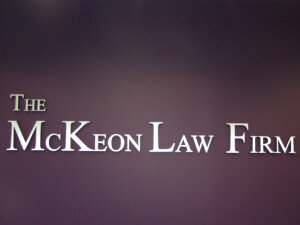Divorcing and splitting your retirement account can be hard

Getting divorced is often an emotional and complex time for people. The later in life you divorce, the more final it may all seem. You may try to take the high road by not asking for your fair share of marital assets, but that could have long-term repercussions on your life. If you are divorcing, you need to ensure that your future and finances are protected. That often means seeking a fair portion of any retirement account you and your spouse have contributed to over the years of your marriage. When splitting assets like retirement accounts, the help of an experienced attorney is invaluable.
Do you understand if withdrawals will incur taxes and penalties? Is your best option cashing out the fund, splitting it into two accounts, or something else altogether, such as leaving the account alone but asking for compensation in another area? An experienced divorce attorney can help you determine what is reasonable to ask for and what will be the most beneficial to you in the long term.
Even if the account isn’t in your name, you may be entitled to part of the funds
In many marriages, spouses choose what retirement accounts to fund based on the perks and terms provided with an employer-based retirement account. If your spouse, for example, received employer matching contributions for all retirement savings in certain accounts, it would make sense to maximize that benefit. You may have forgone opening your own retirement account so that your former spouse would be able to contribute the maximum amount every year. While your spouse’s income was headed into your retirement fund, your paycheck was covering all of your costs of living.
That doesn’t mean that your spouse just gets to keep everything in the retirement account because it’s not in your name. While your paycheck may not have been deposited into the retirement account, you helped build that fund by taking care of other expenses and household needs. As such, the retirement account should be viewed as marital assets and divided in a fair manner. If you don’t think your former spouse is going to willingly divide assets like the retirement account with you, you need the help of an experienced family law and divorce attorney as soon as possible.
Your attorney can help you make important financial decisions
While the state has eased some requirements for divorcing, Maryland divorces can be difficult to navigate. This is particularly true of high asset divorces and divorces with minor children. When there are complex assets, such as retirement accounts and pensions, you may need the assistance and advocacy of an attorney to help you. Don’t try to go through a divorce on your own! Speak with an experienced attorney who understands divorce and family law in Maryland. Your attorney can help ensure the outcome of your divorce is as fair as possible.



